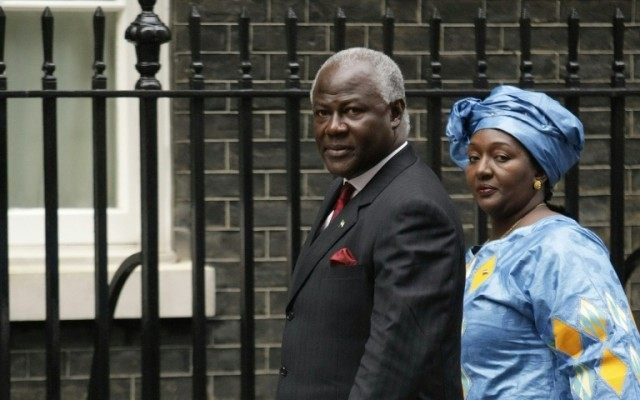Freetown (AFP) – As the president of Sierra Leone equivocates over signing a bill to extend abortion provision in a country with sky-high maternal mortality rates, its powerful religious authorities believe the battle against it is already lost.
Sierra Leone’s parliament passed a law in December allowing abortion in the first 12 weeks of pregnancy and in cases of rape and incest beyond that, replacing legislation from the early 19th century enabling terminations only if the mother’s life is in danger.
The bill, given public backing by the wife of President Ernest Bai Koroma, was expected to receive his signature rapidly to enable it to become law.
For reasons that are the subject of rampant speculation and few concrete facts, he has yet to give his assent, but the coalition of Catholics, Christian evangelicals and Muslim groups that united in stringent opposition to the bill believe the game may be up.
“We are already hearing disturbing reports that even if the president holds back his signature, it is going to be passed and this will be very sad indeed,” said Sheikh Alie Kallay, head of public relations for the Sierra Leone Muslim Congress.
“We are concerned about the silence even though we understand the bill has been sent back to President Koroma by the parliament of Sierra Leone,” Kallay told AFP.
The Catholic Archbishop of Freetown Tamba Charles also expressed his fears that “nothing had been made known” since the bill landed on the president’s desk.
Sierra Leone is a predominantly Muslim country (60-70 percent of the population) but with significant Christian minorities (20-30 percent), according to UN figures, and is often hailed for its inter-religious harmony.
Religious symbols and ceremonies are omnipresent, with a very strong commitment among the population to their various faiths.
The vast majority of religious leaders are opposed to relaxing abortion laws on scriptural grounds, and lawmakers took extensive evidence from Muslim and Christian representatives while drafting the bill, underlining their respected position in society.
The facts are stark: follow-up treatment for women who undergo unsafe abortions costs Sierra Leone’s public health system $230,000 annually, according to a recent health ministry report. Deaths from backstreet abortions represent 10 percent of all maternal mortality.
The report described the current law as “restrictive and outdated”.
The 2014-15 Ebola crisis, which ravaged the country’s already fragile healthcare system, too may have forced the government’s hand by underlining the wider economic implications of unsafe abortion and lack of access to family planning.
– ‘Misconceptions’ –
“There was no access to services or contraception,” during the outbreak, which saw teenage pregnancies in particular shoot up, said Ufuoma Omo-Obi, country director for the Marie Stopes reproductive health charity.
“They were at home and schools were closed down,” he told AFP. “Ebola decimated both healthcare providers and caregivers,” adding that recorded incidents of sexual violence also increased during the period.
According to Omo-Obi, abortions are currently conducted “in the worst places… corner shops… street corners… in the drugstore,” using primitive methods including bicycle spokes.
He was also at pains to emphasise that the bill contains provisions for general maternal health, including far easier access to contraception and family planning.
“There are a lot of misconceptions about the provisions of the bill, but it’s a game changer for women to be able to access quality services, including abortion,” he told AFP.
“Unwanted pregnancies have been identified as a significant problem in all regions nationwide,” the health ministry has said, with unsafe abortion in rural areas at particularly worrying levels.
Many believe Koroma must make a decision soon so the divisive Safe Abortion Act can be put to rest and all sides can move on.
If it passes, experts say the law could be viewed as a model for the region. Bodies such as the African Commission on Human and People’s Rights have called for greater decriminalisation across a continent that has some of the strictest abortion laws in the world.
Whatever the outcome, those spiritually opposed to abortion have vowed never to stop fighting.
“We are committed to the culture of life and we condemn anything that comes in the guise of development,” said the Catholic archbishop.

COMMENTS
Please let us know if you're having issues with commenting.